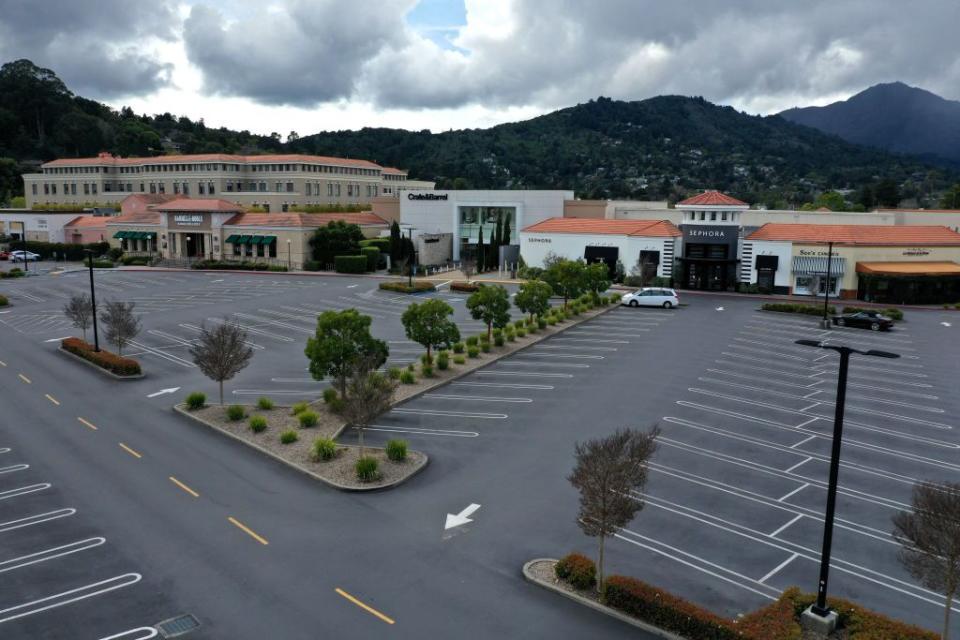Now's Not the Time to Buy and Flip Homes, According to a Real Estate Expert

What does it mean to invest in real estate? Rather than just buying a house to live in, investing is about purchasing a property that will produce income. That could mean you buy a home that you intend to flip (fix up and sell quickly for more than you bought it for) or rent out. Or maybe it's something larger: an apartment or commercial building that has tenants who will pay you enough rent to cover the cost of owning the building, and then some.
Obviously, these purchases are expensive—but on the upside, interest rates are low! If you are in a position to buy an investment property but haven't done it before, read on for tips from Realty ONE’s CEO Kuba Jewgieniew to spend your money wisely. Remember: The goal is to build wealth, and that takes time. Don't rush in without planning!
1. Find a mentor.
As with any first-time investment, it’s always a good idea to get help from someone who has successfully done it (or, at the very least, learned from their mistakes). “If you want to jump into real estate investing in today’s market, I urge you to jump in with a mentor,” Jewgieniew says. “Get your feet wet, and get some experience so you don’t get burned."
2. Pay attention to where people are moving.

The pandemic is having a huge impact on where people are living. “With fewer people returning to a physical office and many more people reevaluating their life choices, we’re seeing a resurgence in cities like Phoenix, Arizona, our headquarters’ home of Las Vegas, Nevada, and even once-less-popular markets like Boise, Idaho,” Jewgieniew says. “As more people move to these metros but also out to the suburbs to get a bigger space for less money, we’ll see even these areas become more popular, driving home prices higher.”
An area with higher property values has the potential the yield a more lucrative real estate investment, Jewgieniew explains. So pay attention to on-the-rise hotspots—that can be a certain city or even a specific neighborhood—when deciding where to invest.
3. Think about how the neighborhood is going to change.

Jewgieniew is hedging his bets on apartment buildings and boutique hotels that are up for sale near malls, which might soon become defunct due to the rise of e-commerce. “I anticipate that retailers like Amazon will buy up these malls and convert them into distribution centers, creating jobs near the former malls,” Jewgieniew explains. “I believe that a lot of these apartments near the malls are going to get converted into condos to accommodate the workforce."
Say you're not ready to go all-in on a building across from an empty mall, we get it. But the point is to think critically about the neighborhood—and even the specific intersection—you're considering. What might it look like in ten years? What will commercial tenants be looking for in the local building stock? It's impossible to predict the future, but in order to be successful at real estate you have to try, and be willing to take some risk.
You love beautiful homes. So do we. Let’s obsess over them together.
4. Build a business plan before investing.
Before so much as placing a bid, do a thorough financial projection to figure out how much you can afford to spend on a given property in order to actually profit from the purchase. “If you want to get in on real estate investing, I would, number one, suggest doing the math and seeing when there will be cash flow,” Jewgieniew says. It's not just about how much money you have and what income the building creates; you'll need to factor external factors such as interest rates, vacancy rates, and occupancy rates into the equation too.
If finance isn't your area of expertise, Jewgieniew suggests using online resources to help you do financial projections. You may even find great resources in your network–whether it's a friend, family member, colleague, or even a real estate professional you've worked with before. "One of the best ways to invest for the first time is to find a partner who’s got experience," Jewgieniew says. "You can learn a lot as you go!"
5. Don't rush into flipping a home
“A year ago, I would have said something different, but do not try to get in and get out quickly," Jewgieniew advises. "Buy it, hold it long term, and focus on cash flow.” Why wait? Competition for these properties is intense right now, so you may have to pay a little more than you should to acquire one—and since construction materials are also extra expensive, it'll be harder to turn a profit.
It all goes back to taking some time to crunch the numbers before you rush into things. "If you’ve got a business plan in place and have a network of resources, like a knowledgeable real estate pro," says Jewgieniew, "then now could be a good time to invest in a flip property."
Follow House Beautiful on Instagram.
You Might Also Like

